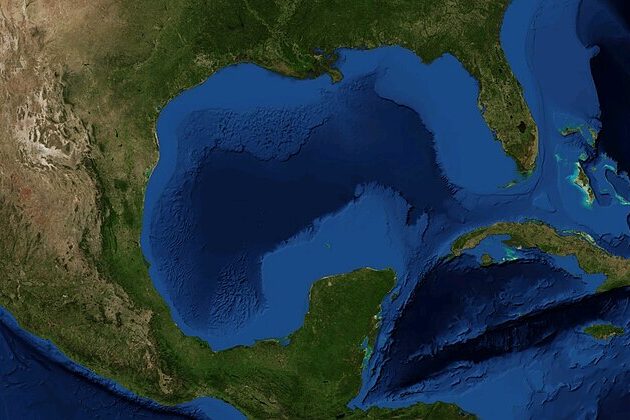
President Joe Biden’s Department of the Interior recently put up an area the size of Italy in the Gulf of Mexico for auction for oil and gas drilling.
This move has dealt a significant blow to Biden’s reputation for handling climate change, despite scientists’ warnings that fossil fuels must be phased out rapidly to avoid disastrous global heating. The lease sale, known as lease 259, had the potential to extract more than 1bn barrels of oil and 4.4tn cubic feet of gas over the next 50 years. Furthermore, it comes less than a month before the 13th anniversary of the Deepwater Horizon oil spill disaster.
A total of 313 tracts of ocean, spanning 1.6 million acres, received high bids during the auction, with 32 fossil fuel companies collectively bidding $309.7m for drilling rights. The federal government offered a much larger amount, and the bids will be evaluated by the government before leases are issued. The sales come two weeks after the Biden administration approved the controversial Willow project, a drilling endeavour that will remove more than 600 million barrels of oil over its lifetime. The two actions have caused major alarm among climate change activists and advocates.
The Gulf of Mexico sale is a major setback for Biden, who had promised to halt all drilling on federal lands and waters before his election. For the first half of his presidency, Joe Biden led on climate with transformative vision, but in the second half, he seems to be signaling a disastrous climate U-turn. The sweeping legislation he signed last summer, known as the Inflation Reduction Act (IRA), has billions of dollars in support for renewable energy projects and electric car subsidies. However, it included stipulations that large areas of the Gulf of Mexico and Alaska be made available for fossil fuel drilling to appease Joe Manchin, a pro-coal Democratic senator and key swing vote.
Climate campaigners mostly considered the trade-off to be worthwhile as the resulting emissions cuts should still be significant, but the new glut of drilling could wipe out much of the benefits of wind and solar projects over the next decade.
The White House has pointed to several complicating factors to its climate agenda, including Russia’s invasion of Ukraine, which has sped up the construction of oil and gas export terminals in the US bound for European allies, as well as a closely divided Congress and various legal obstacles.
The National Ocean Industries Association, a lobby group for offshore drillers, has said that allowing the leases provides a “key component of a national energy strategy that will ensure Americans can continue to have access to fundamental domestic energy that is produced safely, sustainably, and responsibly.” However, this move is out of step with what Biden himself has called the existential threat of climate change.
Opponents argue that such a large area did not need to be put up for sale, and the latest lease blocks will also likely end up in court, with a coalition of green groups suing this month to stop it. It is not clear how much interest there will be from the industry, as an auction of leases in December for the Cook Inlet in Alaska yielded just one bid.
Environmental activists have criticised Biden’s recent actions and accused him of breaking his campaign promises. They argue that the president’s decisions appear to be rooted in the political and economic calculus of the last century, not this one. This move is locking in decades of fossil fuel use when the world should be heading in another direction.
The Earth’s climate system is uncompromising, and the recent Intergovernmental Panel on Climate Change (IPCC) report warned that three billion people around the world are already suffering from climate change. The Gulf of Mexico sale could exacerbate the problem by locking in decades of fossil fuel use and adding to the already high level of greenhouse gases in the atmosphere.
——————————————————————————
At Natural World Fund, we are passionate about stopping the decline in our wildlife.
The declines in our wildlife is shocking and frightening. Without much more support, many of the animals we know and love will continue in their declines towards extinction.
When you help to restore a patch of degraded land through rewilding to forests, meadows, or wetlands, you have a massive impact on the biodiversity at a local level. You give animals a home and food that they otherwise would not have had, and it has a positive snowball effect for the food chain.
We are convinced that this is much better for the UK than growing lots of fast-growing coniferous trees, solely to remove carbon, that don’t actually help our animals to thrive.
This is why we stand for restoring nature in the UK through responsible rewilding. For us, it is the right thing to do. Let’s do what’s right for nature!
Support our work today at https://naturalworldfund.com/ and join in the solution!

